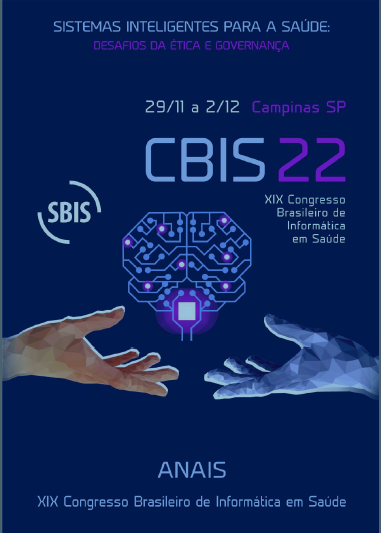Analysis of the Prevalence of HLA Alleles in Patients with COVID-19
DOI:
https://doi.org/10.59681/2175-4411.v15.iEspecial.2023.1083Keywords:
Case-Control Study, HLA alleles, Matching AlgorithmAbstract
The aim of this work was to analyze the prevalence of HLA alleles in patients with COVID-19 through a Case-Control Study (CCS). The methodology used the information systems SIVEP-Gripe, which records cases of Severe Acute Respiratory Syndrome (SARS), and e-SUS, which records suspected or confirmed cases of COVID-19, to compose the database for the CCS. Then, a query was performed on the organ donor database (REDOME) to obtain the HLA alleles. To obtain a homogeneous control base for the CCS from the characteristics of the case base records, a matching algorithm was implemented. Finally, the analysis of the HLA alleles in patients with COVID-19 was performed. The results show the balanced choice of the algorithm and the allele analysis showed differences between the distribution of allelic groups as a function of ethnicity/race.
References
Brasil, Ministério da Sáude. e-SUS Notifica [Internet]. Available from: https://www.gov.br/saude/pt-br/composicao/svs/sistemas-de-informacao/e-sus-notifica
Brasil, Ministério da Sáude. SIVEP-Gripe [Internet]. Available from: https://sivepgripe.saude.gov.br/sivepgripe/
Correale P, Mutti L, Pentimalli F, et al. HLA-B*44 and C*01 Prevalence Correlates with Covid19 Spreading across Italy. Int J Mol Sci. 2020; 21(15).
Tenny S, Kerndt CC, Hoffman MR Case Control Studies. StatPearls [Internet]. 2022.
Nunes K, Aguiar V, Silva M, et al. How Ancestry Influences the Chances of Finding Unrelated Donors: An Investigation in Admixed Brazilians Front. Immunol. 11:584950. doi: 10.3389/fimmu.2020.584950
Downloads
Published
How to Cite
Issue
Section
License
Copyright (c) 2023 Gabriel P. Mendes, Luís C. M. S. Pôrto, Cristiano Lima, Helton Santiago, Stephanie Almeida, Alexandre C. Sena

This work is licensed under a Creative Commons Attribution-NonCommercial-ShareAlike 4.0 International License.
Submission of a paper to Journal of Health Informatics is understood to imply that it is not being considered for publication elsewhere and that the author(s) permission to publish his/her (their) article(s) in this Journal implies the exclusive authorization of the publishers to deal with all issues concerning the copyright therein. Upon the submission of an article, authors will be asked to sign a Copyright Notice. Acceptance of the agreement will ensure the widest possible dissemination of information. An e-mail will be sent to the corresponding author confirming receipt of the manuscript and acceptance of the agreement.

